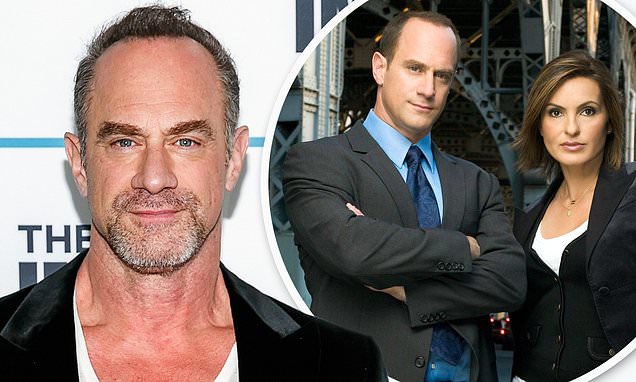
The Enduring Echo of Justice: Why Fans Call Law & Order: SVU the Best Crime Series on TV
In the crowded, often blood-soaked landscape of television crime dramas, one siren's call rings louder, longer, and more insistently than almost any other: the iconic "dun-dun" of Law & Order: Special Victims Unit. For over two decades, this spin-off has not merely survived; it has thrived, capturing the unwavering loyalty of millions who readily crown it the best crime series on television. This isn't just about longevity; it's about a unique blend of unflinching focus, profound character development, timely social commentary, and a procedural precision that, despite its dark subject matter, offers a consistent, cathartic pursuit of justice.
Foremost among the reasons for SVU's unparalleled status is its courageous and often agonizing focus on crimes of sexual assault and child abuse. While other crime shows might occasionally touch upon these heinous acts, SVU makes them its raison d'être, diving headfirst into the darkest corners of human depravity. This isn't for shock value; it's to give a voice to the voiceless, to shine a spotlight on trauma often shrouded in silence and shame. Fans appreciate that the show prioritizes the victim's journey, the agonizing process of reporting, testifying, and healing, rather than just the thrilling chase for the perpetrator. The narrative often shifts from "who did it" to "what happened to them," allowing viewers to grapple with the emotional fallout and societal implications in a way few other series dare. The stories are rarely simple whodunits; they are complex psychological portraits of survival and the tireless fight for accountability.
Beyond its crucial thematic focus, SVU owes its enduring appeal to its iconic, evolving characters, particularly the indomitable Olivia Benson, portrayed with a raw intensity and compassionate grace by Mariska Hargitay. Benson isn't just a detective; she's a moral compass, a surrogate advocate, and a figure of unwavering hope for victims. Her journey from ambitious junior detective to the empathetic captain of the squad has allowed viewers to grow with her, witnessing her personal sacrifices and emotional toll. The dynamic with her long-time partner, Elliot Stabler, in the show's earlier seasons, was electric – a clash of fiery passion and controlled empathy that resonated deeply. Even after his departure, the ensemble cast, from the sardonic wit of Fin Tutuola to the evolving dedication of Amanda Rollins and the pragmatic wisdom of Rafael Barba and Carisi, has fostered a sense of family, making the viewer feel invested not just in the cases, but in the lives of the detectives themselves. We grieve with them, celebrate their small victories, and watch as the relentless exposure to evil shapes their very souls.
Crucially, SVU has proven itself to be a cultural barometer, consistently "ripped from the headlines" and unafraid to tackle seismic cultural shifts. Whether exploring the complexities of consent in the age of #MeToo, the insidious reach of online predators, the nuances of LGBTQ+ rights, or the systemic biases within the justice system, the show has never shied away from reflecting contemporary societal challenges. It sparks conversations, educates its audience on legal precedents and victim's rights, and often presents scenarios without easy answers, forcing viewers to confront their own biases and beliefs. This topicality ensures the show remains relevant, a living, breathing commentary on the evolving understanding of crime and justice in modern society, rather than just a static procedural.
Finally, the inherent procedural precision and ultimate catharsis offered by SVU provide a comforting rhythm amidst the chaos. From the distinctive two-tone sound that marks a scene change, to the methodical police work of gathering evidence, interviewing witnesses, and navigating the often-frustrating legal labyrinth, the show offers a satisfying journey from crime scene to courtroom. While justice isn't always perfectly served in the real world, SVU often provides the rare, much-needed satisfaction of seeing perpetrators held accountable. This isn't naive idealism; it’s a necessary form of emotional release, a symbolic restoration of order in a world that often feels disorderly. For an hour, viewers can believe that dedicated individuals are fighting for what's right, providing a vital sense of hope and a tangible pursuit of fairness.
In essence, Law & Order: SVU is more than just a crime series; it's a cultural institution. It earns its "best" title not through sensationalism, but through its relentless empathy, its development of characters who feel like family, its commitment to reflecting the complexities of our world, and its unwavering belief in the pursuit of justice, even when that pursuit is heartbreakingly difficult. It is a show that educates, provokes, and ultimately, advocates – leaving an indelible mark on its audience and an echoing "dun-dun" in the collective consciousness.
